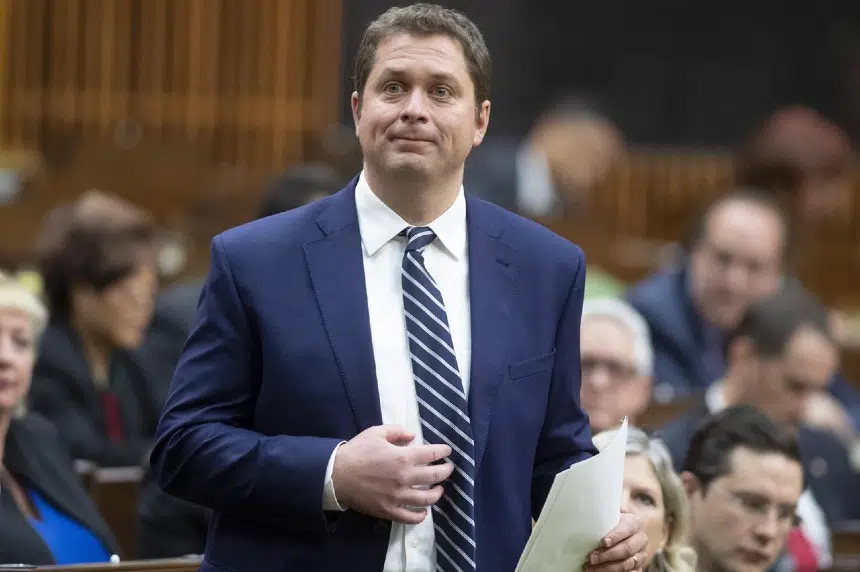Athough there seems to be heavy division within the Liberal Party after the shock resignation of Finance Minister Chrystia Freeland on Monday, Conservative MP Andrew Scheer said on Tuesday he thinks it is unlikely any Liberal MPs would vote with Conservatives in a non-confidence motion.
“Despite some of the Liberal MPs speaking publicly in the past, they have never actually translated that into actually voting no confidence in the government.
“So this, this may be different … some of the Liberal MPs coming out of caucus last night were far more assertive in their language, so we’ll see,” Scheer said on The Evan Bray Show.
Read more:
- Feds look to boost money-laundering penalties by 40 times
- In tumultuous history of finance minister resignations, Freeland’s exit stands out
Scheer, the Conservative MP for Regina—Qu’Appelle, joined Bray to discuss possible fallout from Freeland’s resignation.
In her resignation letter, Freeland said the incoming administration in the United States is pursuing a policy of aggressive economic nationalism, and the threat of 25 per cent tariffs should be taken extremely seriously.
Scheer said this is not the time to have division in the government and it is “a critical moment in our country’s history.”
“We’ve got a crisis in our economy. We’ve basically got a recession, inflation is still going up, and we’ve got this massive dispute with the United States, with a president that’s making very aggressive threats that would just totally bludgeon our economy with a 25 per cent tariff. And this is the worst possible time for a governing party to go through this kind of turmoil,” he said.
The government’s fall economic statement released yesterday reported a deficit of $61.9-billion for 2023-24. Statistics Canada’s consumer price index report released on Tuesday showed inflation slowed to 1.9 per cent in November from two per cent in October.
A year ago, Freeland announced a set of fiscal guardrails in response to pressure from the Bank of Canada and economists to avoid fuelling inflation with too much spending. These included capping the deficit at $40.1 billion in 2023-24.
Scheer said that deficit means major impacts for Canadians.
“I’ve driven on some icy Saskatchewan roads, and if you’re if you’re even getting close to the guardrail you’re way off track.
“Freeland and the Liberals didn’t just brush up against that guardrail yesterday. They smashed through it with a $62 billion deficit,” he said.
“What that means in the short term is that prices and interest rates will likely stay high. The government has to go out and borrow that difference, and they compete for borrowing with you and me and everyone who has a line of credit or mortgage, so that pushes interest rates high long term.
“It means that Canadians are going to be paying that debt off for years to come. So that’s why it’s critical that we stop the damage,” said Scheer.
The House of Commons is now on its holiday break, giving Prime Minister Justin Trudeau a few weeks to decide on his next move before MPs return to Ottawa on Jan. 27.
— with files from Canadian Press and Roman Hayter, 980 CJME
Read more:







